Anoushey Ashraf recently brought attention to a significant issue: The declining mental health of teenage girls in our social media-driven world. Her insights are particularly relevant for parents, educators, and those involved in business and healthcare, as this is a pressing concern that needs to be addressed.
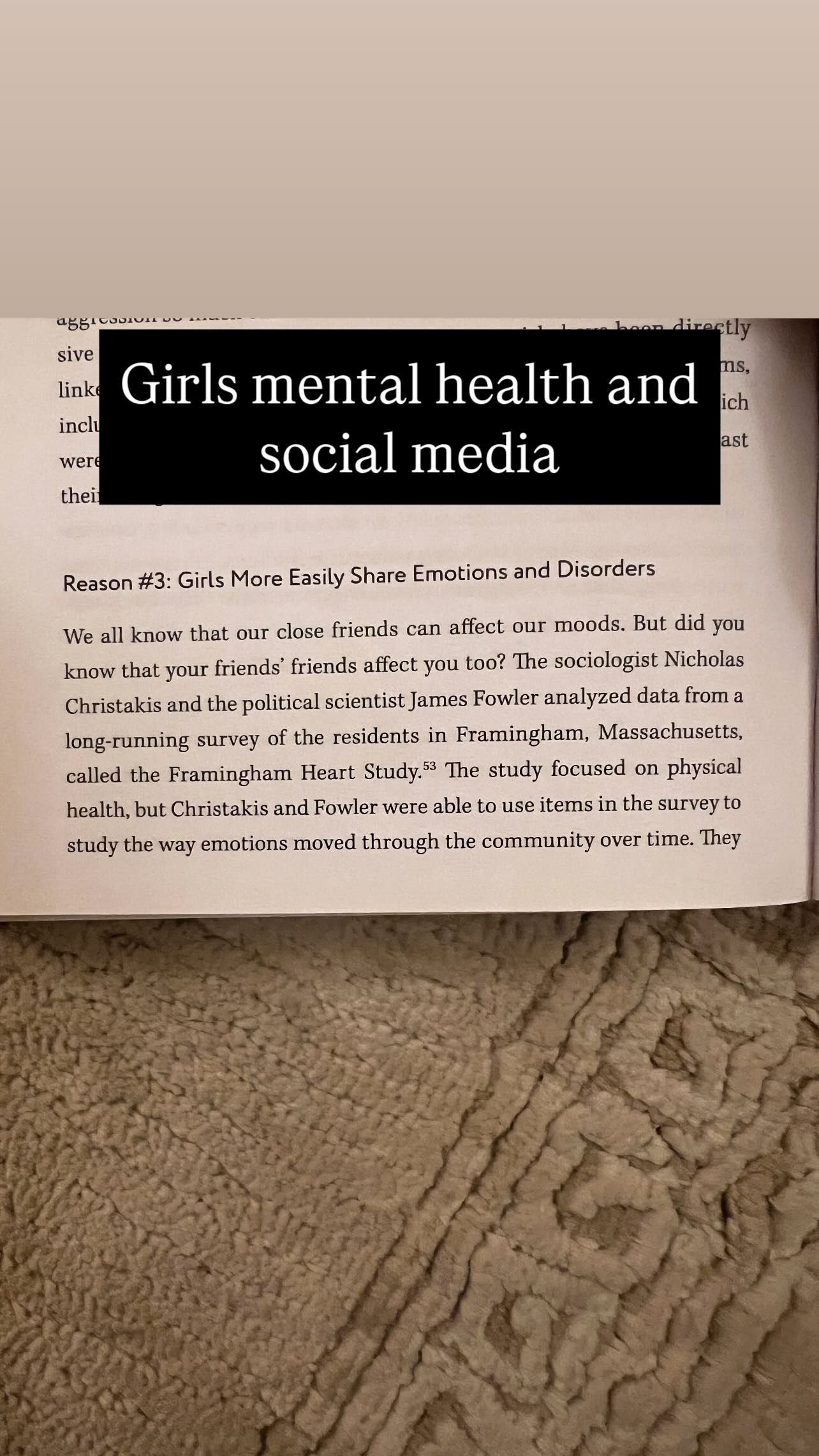
Research from sociologist Nicholas Christakis and political scientist James Fowler highlights the concept of emotional contagion, which is crucial in understanding how mental health issues can spread.
Girls, who tend to be more emotionally expressive and closely connected to their peers, are especially vulnerable. They don’t just pick up on the feelings of their close friends; they can also be influenced by the emotions of their friends’ friends.
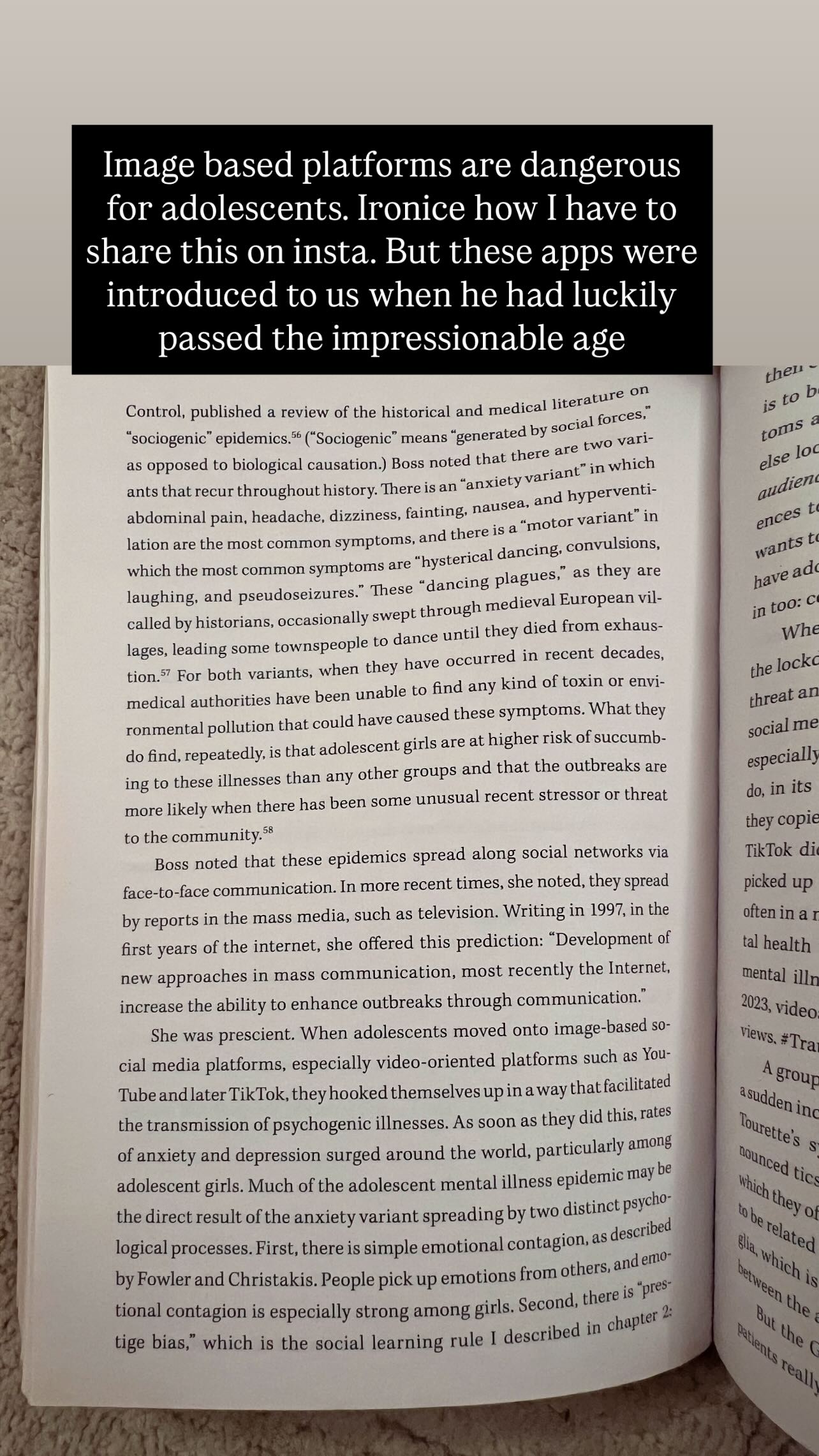
This intense emotional connection can become quite perilous in today’s digital landscape. Social media platforms like Instagram and TikTok enable these emotional triggers to circulate rapidly.
Sadly, many teenagers engage with these platforms during their formative years, often without realising they’re exposing themselves to harmful content that’s cleverly masked as “relatable” or “inspirational.”
The Role of Social Media in Spreading Sociogenic Illnesses
History tells us that sociogenic illnesses, those conditions sparked by social influences rather than biological factors, have been around for quite some time. However, in our current digital age, image-driven social media platforms serve as rapid conduits for spreading these issues.
Adolescents, particularly girls, often find themselves bombarded with content that heightens feelings of anxiety, depression, and even more severe conditions like Tourette’s syndrome and dissociative identity disorder (DID).
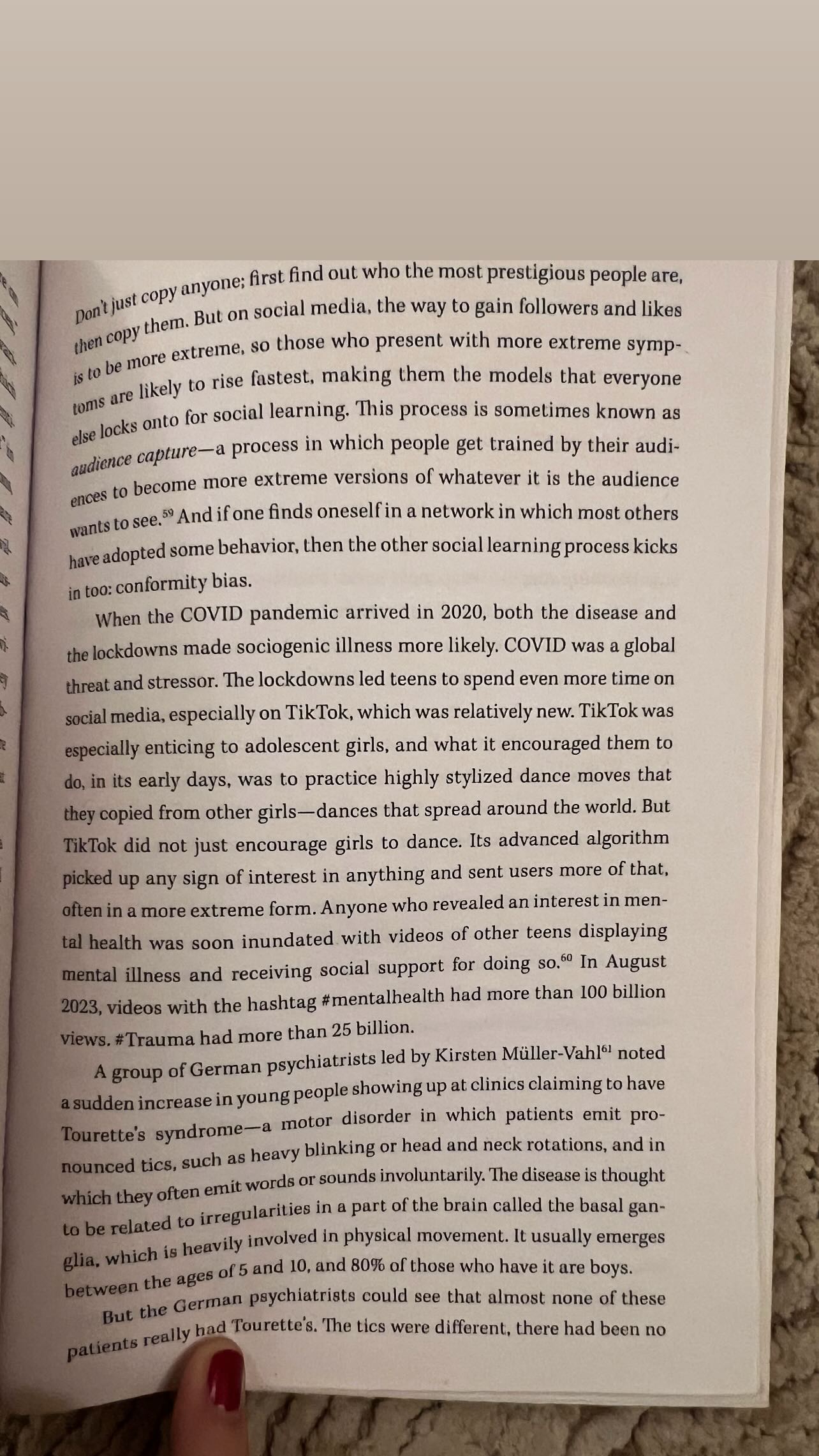
Research has shown that some teenagers start to imitate behaviours they see online. For instance, influencers who genuinely struggle with these disorders often gain a following and recognition. This kind of visibility can lead others to identify with similar symptoms, even if they haven’t experienced them before.
This phenomenon, known as prestige bias, is further fueled by algorithm-driven content, resulting in what’s called “audience capture.” In simple terms, users may become more extreme versions of what they think their audience wants to see.
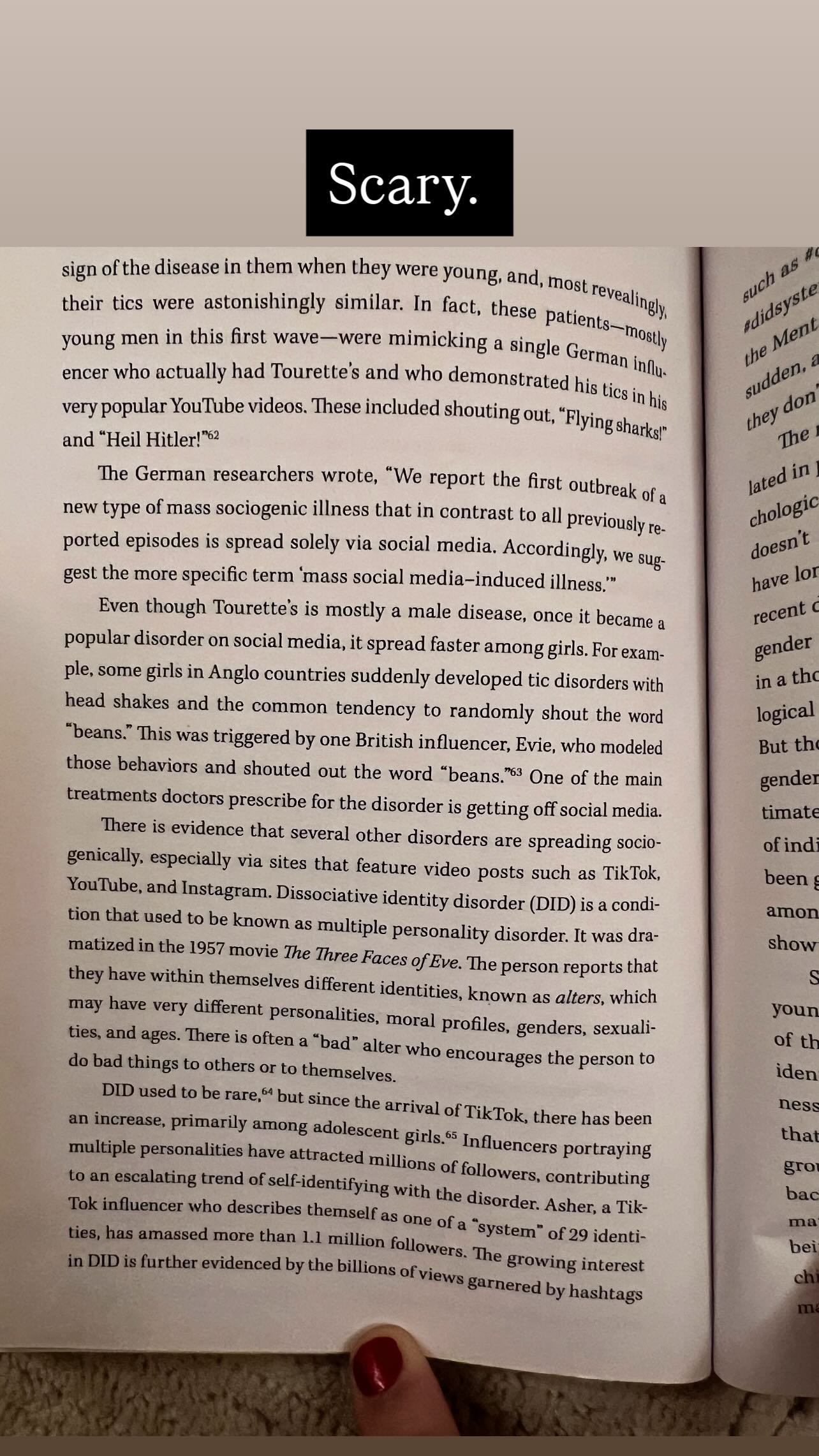
Recent reports from Germany highlight instances of teens mimicking Tourette-like tics after watching influencers. In English-speaking countries, girls have started to develop new, media-influenced forms of tic disorders.
A particular British influencer’s catchphrase, “beans,” unexpectedly turned into a widespread tic among young girls around the world. These trends point to what researchers are calling a mass social media-induced illness.
From Awareness to Action: Why This Matters to Business Leaders
This issue goes beyond just being a social concern; it’s a crucial business necessity. Mental health has a direct impact on performance, productivity, and engagement in schools, workplaces, and homes.
For companies looking to connect with Gen Z or those employing younger talent, understanding these dynamics is essential.
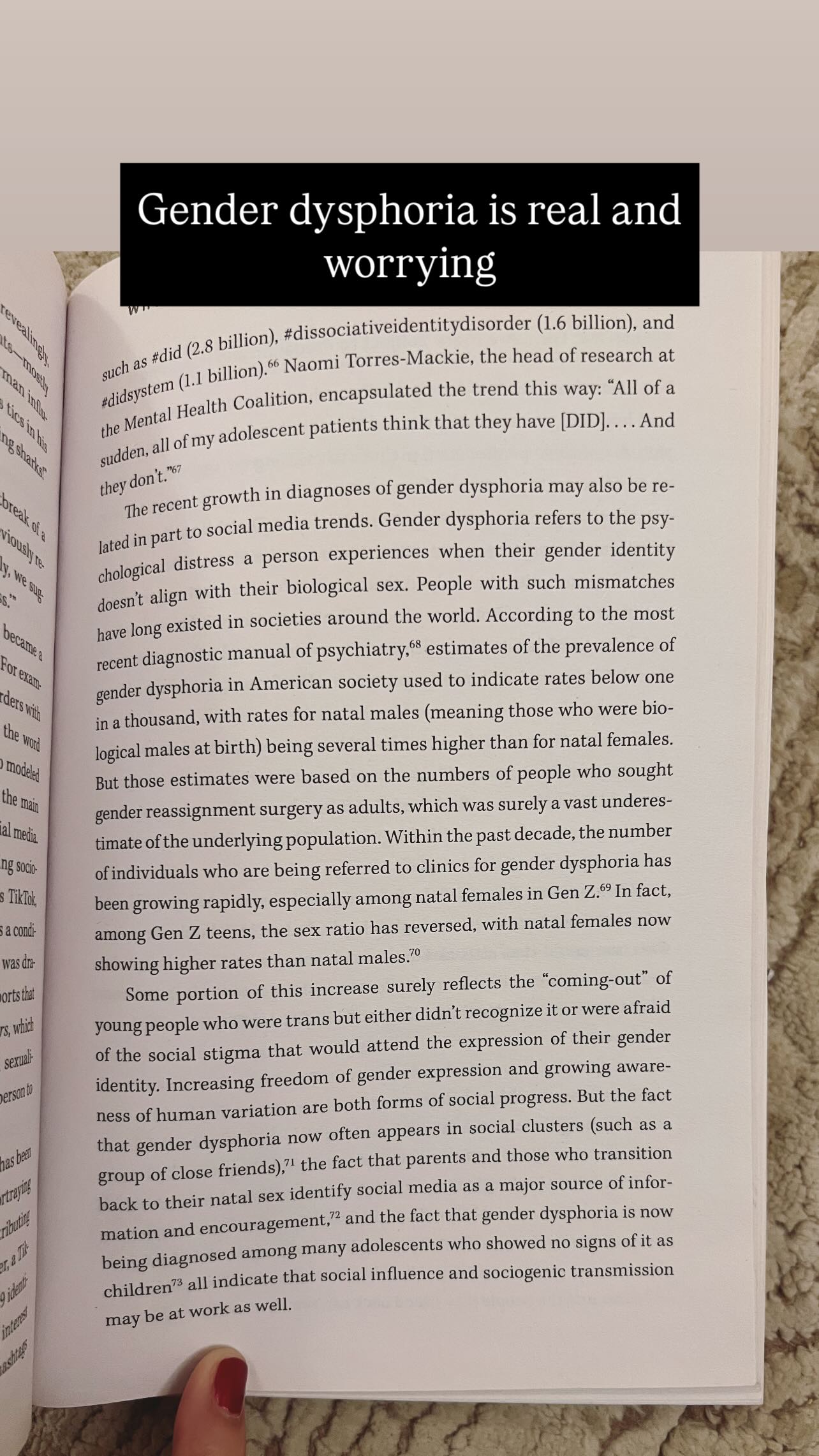
If we don’t address it, the mental health crisis fueled by social media could turn into a long-term economic challenge. Industries such as technology, media, healthcare, and education have both a role and a responsibility in this regard.
Anoushey Ashraf has raised her voice in this regard, becoming part of the growing movement that warns against the dangers of unchecked digital exposure. She’s candid about the irony of using Instagram to critique image-centric platforms, but her message is crucial. When misused, these tools can become sources of psychological harm.
Shifting from concern to accountability demands intentional action. Business leaders need to champion ethical innovation. Mental health professionals should guide content creators. And most importantly, we must protect young girls from the subtle yet significant dangers lurking behind every scroll and swipe.
Stay tuned to Brandsynario for the latest news and updates





































